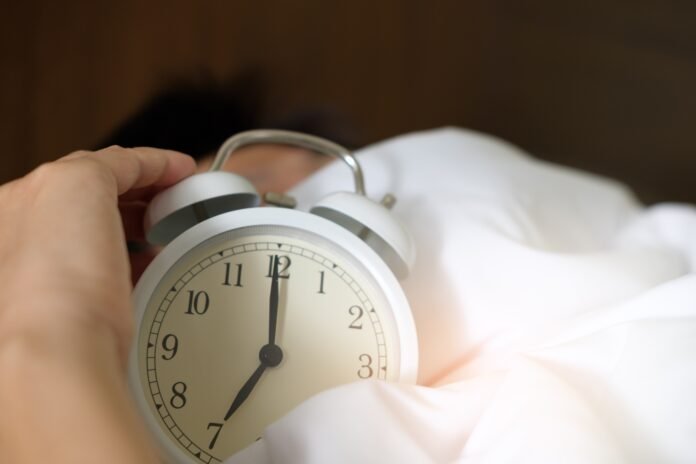Sleep apnea is a disorder which can be identified by the sound of snoring, stop-start breathing and gasping or choking while you the night. The relationship to high blood pressure due to sleep apnea contributes to the theory of high blood pressure might be caused by quality of sleep.
What is Sleep Apnea?
Sleep apnea is a disorder where you cease breathing for short amounts of time during sleep. The pauses may last for several seconds to minutes and could be repeated dozens of times each night. Sleep Apnea can interfere with your sleep and cause you to feel exhausted throughout the daytime. It can also put you at risk of serious health issues, such as the high pressure of your blood.
There are two kinds of sleep apnea, obstructive sleep apnea, and central sleep apnea. Obstructive sleep apnea is when your airway gets blocked while you sleep. Central sleep apnea is when your brain isn’t sending the correct signals to your muscles that regulate breathing.
Sleep apnea is more prevalent for people with obesity, who have tonsils that are large or have an ancestry of the disease. Men are also more likely to suffer from sleep apnea than females.
If you suspect that you suffer from sleep apnea, speak with your physician. There are treatment options to help you control the condition and enjoy the best night’s sleep.
How to Tell if You Have Sleep Apnea
If you suffer from elevated blood pressure then you could be at risk of developing sleep apnea. Sleep apnea is a disorder which causes breathing to cease and resume during sleep. This could result in your blood pressure increase. If you suspect that you suffer from sleep apnea, speak with your physician.
What are the Symptoms of Sleep Apnea?
Sleep apnea is a disorder that causes a person to stop breathing for short intervals of time while asleep. The episodes can happen frequently throughout the night and last for a couple of seconds or even minutes. Sleep apnea sufferers often sleep with a loud snore. They can also experience daytime fatigue, gasping for air while asleep, and waking up with headache or dry mouth.
Sleep Apnea is a severe condition that can result in high blood pressure as well as stroke, heart disease as well as other health issues. If you think that you suffer from sleep apnea, consult your physician for an assessment. The doctor may suggest you take Modalert .
Types of Treatments for Sleep Apnea
There are many various treatments for sleep apnea that are based upon severity and the problem. Certain people might only have to change their lifestyle like cutting down on weight, not drinking alcohol, or sleeping on their backs. Others might require the continuous positive pressure (CPAP) device, which provides air pressure through the use of a mask while sleeping. Surgery is an alternative for people suffering from sleep apnea.
If you suffer from sleep apnea it is important to seek out treatment. If not treated, sleep apnea could result in serious health issues like the risk of stroke, high blood pressure or heart problems.
How Sleep Apnea Affects You in Other Ways (Especially High Blood Pressure)
If you suffer from sleep apnea, you could not just be at risk of elevated blood pressure but other serious health issues. Sleep apnea is a disorder that causes you to stop breathing for short intervals of time when you are asleep. It can happen dozens, perhaps hundreds per at night.
Sleep sleep apnea doesn’t just disturb your sleep but affects how much oxygen your body absorbs. This can cause various health issues, for example:
- Heart disease
- Stroke
- Depression
- Diabetes
If you suffer from sleep apnea it is important to seek treatment. One treatment is to eat Waklert. Treatment options include changes to your lifestyle including losing weight and stopping smoking cigarettes. It is also possible to wear a breathing device during the night. The treatment you receive can improve the overall condition of your health as well as overall quality of living.
The Relationship between Sleep Apnea and High Blood Pressure
There are a variety of possible reasons for high blood pressure. One of the most common can be sleep apnea. Sleep apnea refers to a condition where a person’s breath is disrupted during sleep which can lead to an increase in blood pressure.
There are two kinds of sleep apnea: obstructive and central. Obstructive sleep apnea is more popular type, and happens when the airway is closed during sleep. Central sleep apnea happens because the brain does not send the correct signals to muscles that regulate breathing.
Sleep apnea is not often recognized due to the fact that it occurs mostly when you sleep. But, there are indicators and signs that could be an indication of the condition, like snoring, gasping or choking in sleep and waking frequently throughout the night, or feeling tired throughout the daytime. If you think that you have sleep apnea it is important to consult the doctor to determine the diagnosis.
If you suffer from sleep apnea, there are remedies that may help. One option for treatment could be to use Continuous Positive Pressure (CPAP) which makes use of an apparatus to provide pressure that keeps the airway open during are asleep. Furthermore, Modvigil may help in this. Artvigil is a drug that can be utilized to help treat sleep apnea.


